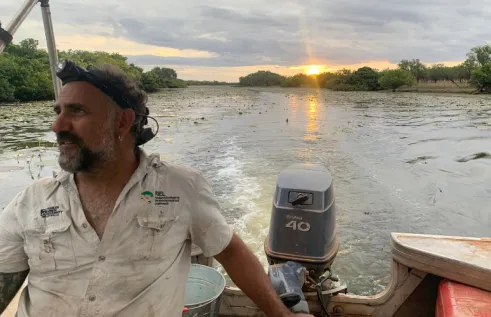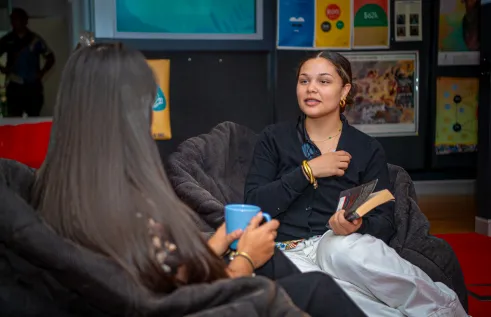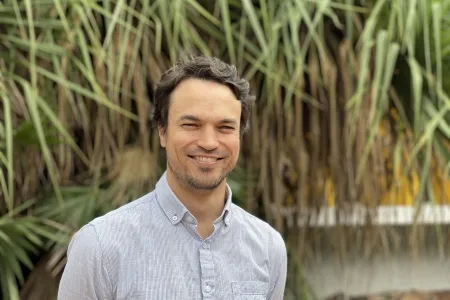RIEL seminar series
Hidden emissions
| Presenter | Dr Clément Duvert | |
|---|---|---|
| Date/Time |
to
|
|
| Contact person | E: RIEL.outreach@cdu.edu.au | |
| Location |
CDU Casuarina campus, Yellow Building 1.2.48, Savanna Room and online via Zoom (see below for Zoom link) All times are ACST |
|
| Open to | Public | |
Dr Clément Duvert is a senior research fellow with the Research Institute for the Environment and Livelihoods (RIEL) at Charles Darwin University (CDU).
Tropical rivers, lakes and wetlands receive large quantities of terrestrial carbon, which they process and release as greenhouse gases (GHG). These GHG emissions from tropical freshwaters have been overlooked due to limited observations across the tropics until recently.
In the seminar ‘Hidden emissions: Greenhouse gases from tropical freshwaters’, Clément will present results from a new database of GHG concentrations and fluxes in tropical freshwater systems. He will highlight the extreme variability in GHG concentrations and fluxes across the tropics, and the role of small streams, ponds and riparian wetlands as globally significant hotspots of GHG emissions.
Clément is a senior research fellow specialising in isotope hydrology and aquatic carbon cycling. He is interested in understanding the movement of water and associated solutes through tropical landscapes. At CDU, his work examines the transfer of carbon from soils to aquifers and rivers. He co-leads the Top End Hydrology Lab with Dr Dylan Irvine.
Related Events

Trophic dynamics of free-flowing tropical rivers
Colton Perna's PhD research explores how river flows and flooding shape freshwater fish communities in tropical rivers, using fatty acids to track how hydrology influences food webs and nutritional pathways. His findings highlight the critical importance of river flow and floodplain connectivity in sustaining productive aquatic ecosystems.
Read more about Trophic dynamics of free-flowing tropical rivers
STATE OF THE DIS-UNION: Media Literacy in the age of AI
The CDU Library is hosting a free panel discussion featuring Northern Territory journalists who will discuss media literacy, truth, and storytelling in the AI era. Attendees can learn how AI is transforming media, ask questions, and improve their understanding of navigating information in today's landscape.
Read more about STATE OF THE DIS-UNION: Media Literacy in the age of AI
Why Cross‑Cultural Communication Matters in Indigenous-focused Research
A cross‑cultural research partnership grounded in respect, shared knowledge, and educational equity. Discover how collaboration shaped a transformative PhD journey.
Read more about Why Cross‑Cultural Communication Matters in Indigenous-focused Research
